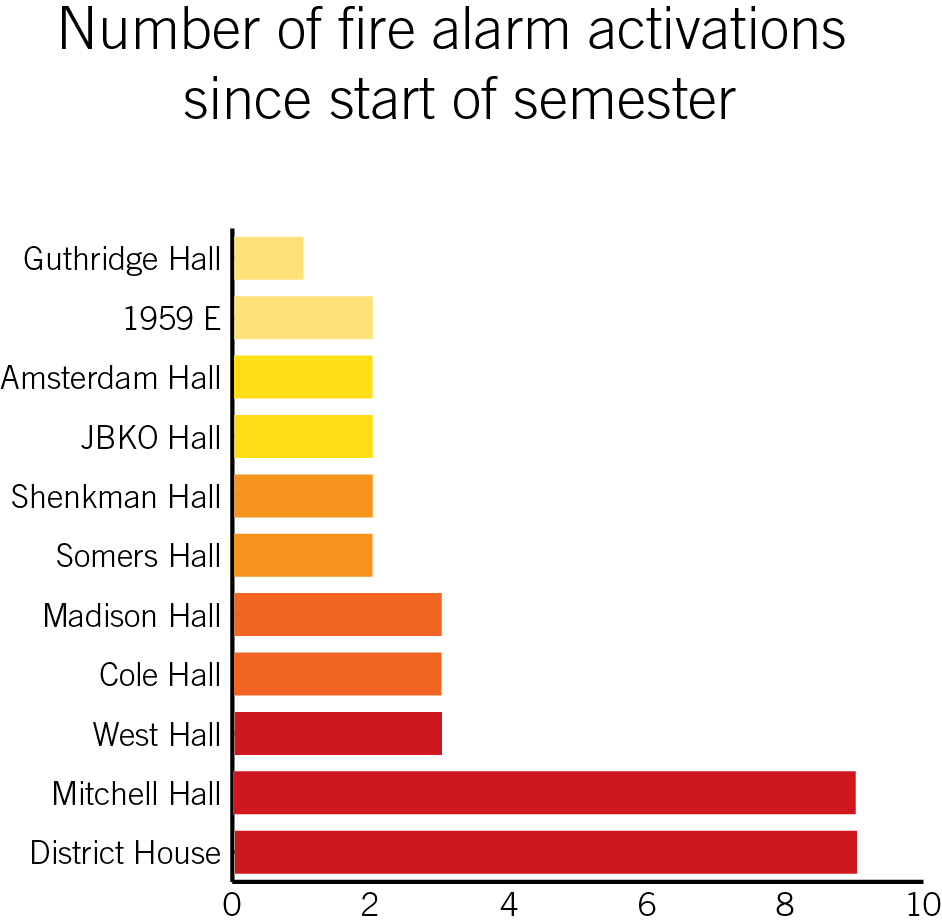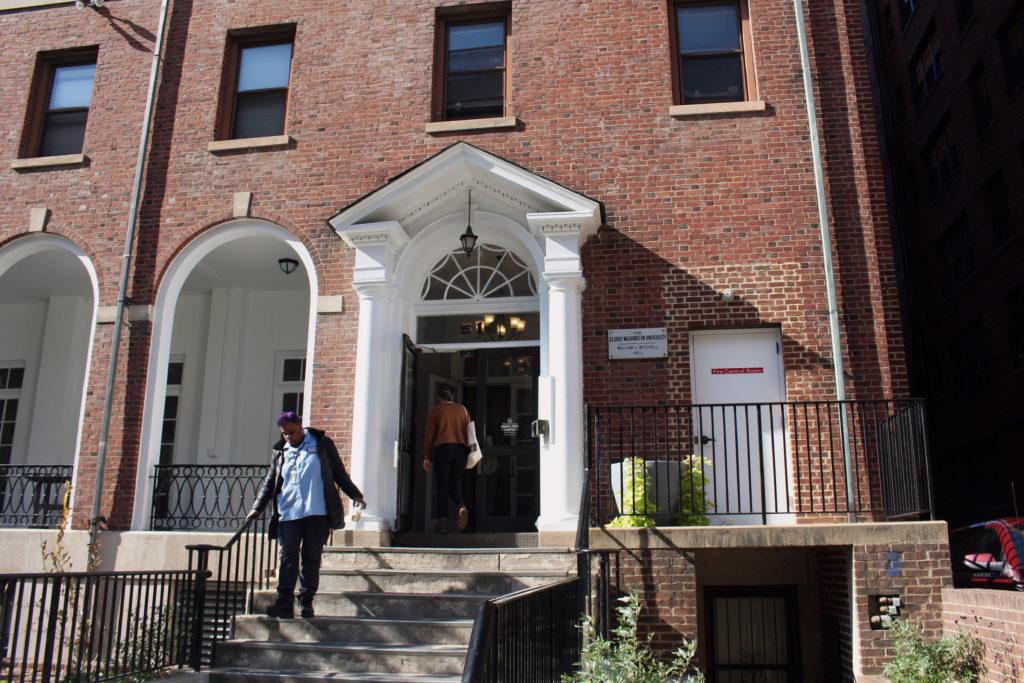Mitchell Hall and District House have experienced four and a half times more fire alarm activations than other residence halls, according to data from the Division of Safety and Security.
The two halls have each experienced nine fire alarm activations – five more than the average of about two activations for residence halls not including District and Mitchell – since the beginning of the academic year, the data show. In interviews with more than 30 District and Mitchell residents, more than half said the fire alarms have made them late for class and interrupted everyday activities like showering and napping.
Kathleen Fox, the associate vice president of health and safety, said cooking malfunctions and dust – which activate accidental fire alarms – prompted the majority of residence hall evacuations so far this semester.
Eight of District’s nine alarm activations were set off by cooking malfunctions, and one was set off by dust. Seven of Mitchell’s nine activations sounded because of cooking malfunctions, and two were caused by contractors, according to the data.

Alyssa Ilaria | Graphics Editor
Fox said a total of 38 fire alarm activations – 30 in Foggy Bottom and eight on the Mount Vernon Campus – have occurred since the beginning of the academic year. Guthridge Hall had just one activation, the lowest number of all residence halls, she said.
“GW is working with residential life to develop messaging about safe cooking and using exhaust fans to try to prevent the incidents that cause the alarms,” Fox said in an email.
She said GW Police Department officers scan the department’s fire annunciator panel, which shows the location of fire alarm activations on campus, and head to the noted location whenever an alarm is activated. She said officers sweep the floor where the alarm was activated, and other officers supervise the evacuated students.
D.C. fire code requires GW to execute four scheduled fire drills each academic year, and Fox said the drills cannot be replaced by unplanned activations. Fox said the health and safety team has conducted one drill so far this academic year and plans to initiate one more later this month.
Students said they don’t respond urgently to the fire alarm activations because the alarms have sounded frequently after no serious incidents occurred.
Katie Capristo, a seventh-floor resident of Mitchell Hall , said she doesn’t respond to the alarms anymore because the activations are frequent, and none have resulted in a severe fire.
“One time, I was in the shower and took the time to collect my things,” Capristo said. “The other time, I changed to go to the gym before evacuating just because I knew I had the time and it wasn’t a real hazard. This, I feel, is very dangerous.”
A Mitchell resident, who spoke anonymously because her on-campus job prevents her from speaking to the media, said GWPD promptly responded to the hall’s first few fire alarm activations, but the officers have taken about 20 minutes to respond during the most recent activations. She said one fire alarm made her late for a class because she left textbooks in her room when residents were evacuating and needed to wait until the evacuation was over to retrieve her books.
“A full evacuation has been required every time, there have been several students who were in the middle of showering or napping,” she said.
Gus Robertson, a fourth-floor District House resident, said he has usually been in class when the fire alarms have gone off, but he has received emails from officials encouraging safe practices for cooking in residence hall rooms.
“There was one week where the fire alarm went off like five or six times in one week, so my RA or the building manager sent an email telling people to be more cautious,” he said.
Twelfth-floor District resident Grey Harral said he wishes GWPD would evacuate one floor at a time to make the evacuation process more orderly. He said officers’ response time to District is usually quick, but he thinks officers could arrive faster given that the department is located less than one block away from District.
“The alarms going off pretty constantly force me to leave without being prepared, or on some occasions have prevented me from being able to grab something necessary from my room,” he said.
Miles Ogden-Powers, a sophomore who lives on the fourth floor of District, said the alarms sometimes interrupt his daily activities, like cooking and napping. He said the alarms happen so frequently that he and his roommates sometimes don’t evacuate the building during an activation.
“One time, I didn’t leave because I had a fever and wasn’t going to get out of bed,” he said. “My roommate’s not here right now, but a lot of times she doesn’t leave.”



